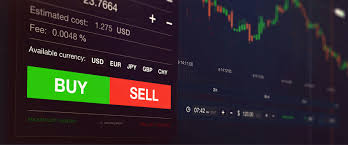The Role of Forex Trading Software Developers in Modern Trading Strategies

The Role of Forex Trading Software Developers in Modern Trading Strategies
In today’s fast-paced financial markets, particularly in the Forex landscape, the role of software developers has grown tremendously. The emergence of advanced trading platforms and automated trading systems has allowed traders to navigate the currency markets with greater expertise and efficiency. This article delves into the significance of Forex trading software developers and how they contribute to the success of traders and institutions alike. For resources related to Forex trading, you might find forex trading software developer Trading Vietnam quite beneficial.
1. Understanding Forex Trading Software
Forex trading software refers to the programs and applications utilized by traders to analyze the market, execute trades, and manage their portfolios. There are various types of Forex trading software, including:
- Trading Platforms: Software that allows users to execute buy and sell orders, typically featuring technical analysis tools. Popular examples include MetaTrader 4 and 5, cTrader, and proprietary platforms developed by brokerage firms.
- Automated Trading Systems: Also known as Expert Advisors (EAs), these systems use algorithms to execute trades automatically based on predetermined conditions.
- Charting Software: Tools that provide visual representations of market data, enabling traders to identify trends and make informed decisions.
- Risk Management Software: Applications designed to help traders manage their risk exposure effectively.
2. The Importance of Software Development in Forex Trading
Forex trading software development is crucial for several reasons:

- Innovation: The Forex market is constantly evolving. Software developers are tasked with creating innovative tools that meet the changing needs of traders. This innovation not only includes new features but also improved user experiences.
- Custom Solutions: Many traders have unique strategies that require tailored software solutions. Developers work closely with traders to create custom applications aimed at maximizing their effectiveness.
- Performance Enhancement: Speed is vital in trading. Software developers optimize trading algorithms and platforms to execute trades at lightning-fast speeds, reducing the chances of slippage and enhancing profit potential.
- Integration with APIs: Many Forex platforms allow for integration with other financial services through Application Programming Interfaces (APIs). Developers facilitate these integrations, which help traders access a broader range of tools and services.
3. Key Skills Required for Forex Trading Software Developers
To succeed in developing Forex trading software, developers must possess a unique set of skills, including:
- Programming Languages: Proficiency in languages like Python, Java, C++, or C# is essential. Each language has its strengths, depending on the type of software being developed.
- Understanding of Financial Markets: A solid grasp of Forex market mechanics, trading strategies, and financial instruments is critical to creating relevant software solutions.
- Algorithm Development: Ability to develop and implement trading algorithms that can analyze market patterns and execute trades automatically.
- Problem-Solving: Trading involves complex problems that require quick and effective solutions. Developers must think critically to troubleshoot and optimize their applications.
- User Interface Design: Good software must have an intuitive user interface. Understanding user needs and creating easy-to-use software is key.
4. The Development Process
The process of developing Forex trading software typically involves several stages:
- Requirements Gathering: Understanding user needs, trading strategies, and market demands is the first critical step.
- Design: Creating wireframes and prototypes to outline the software’s functionality and interface.
- Development: Writing the code to transform designs into functional software. This phase may also include integrating third-party APIs.
- Testing: Rigorous testing to ensure that the software performs correctly under various market conditions. This includes backtesting trading strategies to assess their effectiveness.
- Deployment: Once tested, the software is launched for use, often accompanied by tutorials and support documentation.
- Maintenance and Updates: Regular maintenance is necessary to fix bugs, improve performance, and keep up with market changes.
5. Challenges Faced by Forex Software Developers

Despite the exciting opportunities in Forex software development, developers face several challenges:
- Market Volatility: The Forex market is known for its volatility, which can complicate the performance of automated trading systems. Developers must continuously adapt their algorithms to account for sudden market shifts.
- Regulatory Compliance: The financial industry is heavily regulated, and software developers must ensure their products comply with relevant laws and regulations across different jurisdictions.
- Security Risks: The rise of cyber threats means Forex trading software must be fortified against hacking attempts and data breaches.
- User Education: Many traders may not fully understand how to use complex software tools. Developers sometimes need to create extensive training resources to enhance user adoption.
6. Future Trends in Forex Trading Software Development
Looking ahead, several trends are shaping the future of Forex trading software development:
- Artificial Intelligence: The integration of AI and machine learning in trading algorithms is becoming increasingly popular. These technologies can analyze vast datasets more effectively than traditional methods.
- Mobile Trading: With a growing number of traders using smartphones, the demand for mobile-responsive trading applications is on the rise.
- Blockchain Technology: The potential adoption of blockchain solutions in Forex trading could enhance transparency and security in transactions.
- Social Trading Platforms: The rise of social trading is prompting the development of platforms that enable traders to share strategies and insights in real-time.
Conclusion
The role of Forex trading software developers is integral to shaping the landscape of modern trading. As technology continues to evolve, software developers will remain at the forefront, driving innovation and helping traders navigate the complexities of the Forex market. By harnessing new technologies and adhering to best practices, these professionals can create robust solutions that empower traders to achieve their financial goals.






